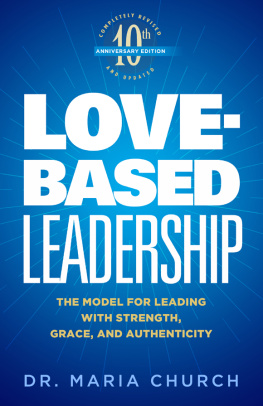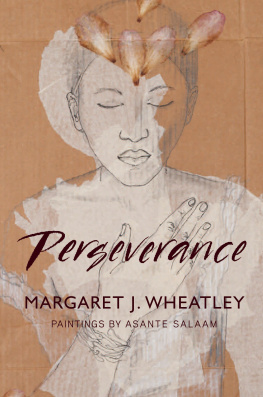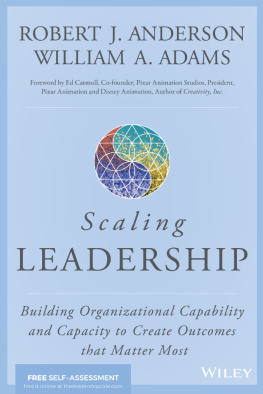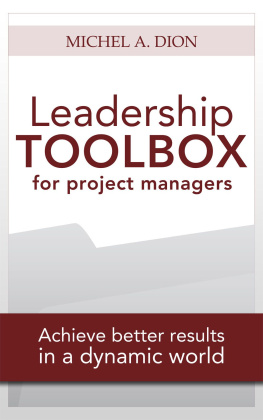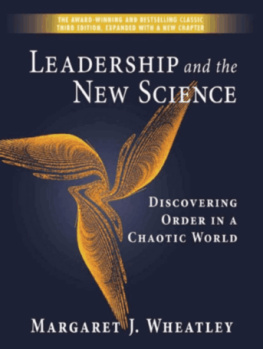Finding Our Way
Previous books by Margaret J. Wheatley
Turning to One Another
A Simpler Way (with Myron Kellner-Rogers)
Leadership and the New Science
Finding Our Way
Leadership for an Uncertain Time
Margaret J. Wheatley

Finding Our Way
Copyright 2005, 2007 by Margaret J. Wheatley
All rights reserved. No part of this publication may be reproduced, distributed, or transmitted in any form or by any means, including photocopying, recording, or other electronic or mechanical methods, without the prior written permission of the publisher, except in the case of brief quotations embodied in critical reviews and certain other noncommercial uses permitted by copyright law. For permission requests, write to the publisher, addressed Attention: Permissions Coordinator, at the address below.

| Berrett-Koehler Publishers, Inc.
235 Montgomery Street, Suite 650
San Francisco, California 94104-2916
Tel: (415) 288-0260, Fax: (415) 362-2512
www.bkconnection.com |
Ordering information for print editions
Quantity sales. Special discounts are available on quantity purchases by corporations, associations, and others. For details, contact the Special Sales Department at the Berrett-Koehler address above.
Individual sales. Berrett-Koehler publications are available through most bookstores. They can also be ordered directly from Berrett-Koehler: Tel: (800) 929-2929; Fax: (802) 864-7626; www.bkconnection.com
Orders for college textbook/course adoption use. Please contact Berrett-Koehler: Tel: (800) 9292929; Fax: (802) 864-7626.
Orders by U.S. trade bookstores and wholesalers. Please contact Ingram Publisher Services, Tel: (800) 509-4887; Fax: (800) 838-1149; E-mail: customer.service@ingrampublisherservices.com; or visit www.ingrampublisherservices.com/Ordering for details about electronic ordering.
Berrett-Koehler and the BK logo are registered trademarks of Berrett-Koehler Publishers, Inc.
First Edition
Hardcover print edition ISBN 978-1-57675-317-0
Paperback print edition ISBN 978-1-57675-405-4
PDF e-book ISBN 978-1-60509-146-4
IDPF e-book ISBN 978-1-60509-879-1
2009-1
Cover and Interior Design: Canace PulferA/3 Design; Cover Illustration: John Collier Production Management: Michael Bass Associates
When the forms of an old culture are dying,
the new culture is created by a few people who are not afraid
to be insecure.
Rudolf Bahro

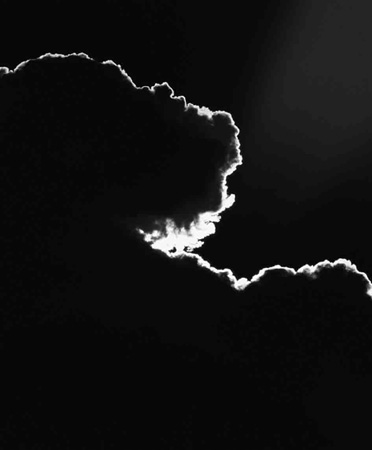
It is not revolutions and upheavals
That clear the road to new and better days,
But revelations, lavishness and torments
Of someones soul, inspired and ablaze.
Boris Pasternak, After the Storm, 1958
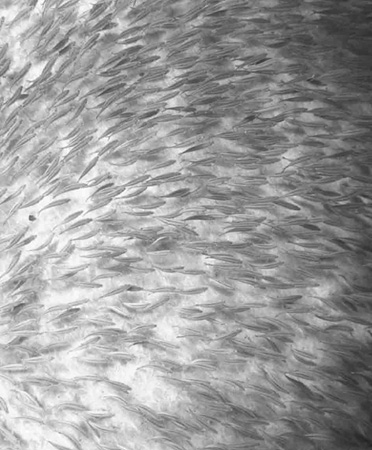
Contents

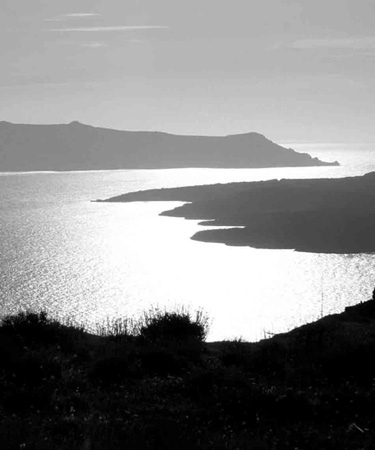
Opening
There is a simpler way to organize human endeavor. I have declared this for many years and seen it to be true in many places. This simpler way feels new, yet it is the most ancient story there is. It is the ancient story demonstrated to us daily by life, not the life we see on the news with its unending stories of human grief and horror, but what we feel when were in nature, when we experience a sense of lifes deep harmony, beauty, and power. It is the story of how we feel when we see people helping each other, when we feel creative, when we know were making a difference, when life feels purposeful.
For many years, Ive written and spoken about this ancient new story, and how we might apply it in organizations and communities around the world. Ive learned that as we understand how living systems operate, we develop the skills we need: we become resilient, adaptive, aware, and creative. We enjoy working together. And lifes processes work everywhere, no matter the culture, group, or person, because these are basic dynamics shared by all living beings.
As we work with life, we also rediscover another gift, the great potential of the human spirit. Ive worked in many places in the world of extreme material poverty. But that challenge fades in comparison to those of us who have forgotten how resilient and vast the human spirit is. Mother Teresa once said that the greatest poverty she saw was in the West because we suffer from spiritual poverty.
Western cultural views of how best to organize and lead (the majority paradigm in use in the world) are contrary to what life teaches. Western practices attempt to dominate life; we want life to comply with human needs rather than working as partners. This disregard for lifes dynamics is alarmingly evident in todays organizations. Leaders use control and imposition rather than self-organizing processes. They react to uncertainty and chaos by tightening already feeble controls, rather than engaging our best capacities in the dance. Leaders use primitive emotions of fear, scarcity, and self-interest to get people to do their work, rather than the more noble human traits of cooperation, caring, and generosity. This has led us to this difficult time, when nothing seems to work as we want it to, when too many of us feel frustrated, disengaged, and anxious.
The Era of Many Messes
I find it important, periodically, to ask people to step back and try to see the big picture. This is difficult to do when were stressed by so many pressures at work and at home. But when we shift to fifty thousand feet, its easier to see that our impotence is not a result of personal failings. Instead, failing to achieve good results is a consequence of living in this time when weve reached the end of a paradigm. Many of our fundamental beliefs and practices no longer serve us or the greater world. Worse than that, too many are causing harm and distancing us from the very skills, knowledge, and wisdom that would help.
This is the era of many messes. Some of these weve created (although not intentionally,) because we act on assumptions that can never engender healthy, sustainable societies and organizations. We act as if humans are motivated by selfishness, greed, and fear. That we exist as individuals, free of the obligation of interdependence. That hierarchy and bureaucracy are the best forms of organizing. That efficiency is the premier measure of value. That people work best under controls and regulations. That diversity is a problem. That unrestrained growth is good. That a healthy economy leads naturally to a healthy society.
That poor people have different motivations than other people. That only a few people are creative. That only a few people care about their freedom.
Next page

